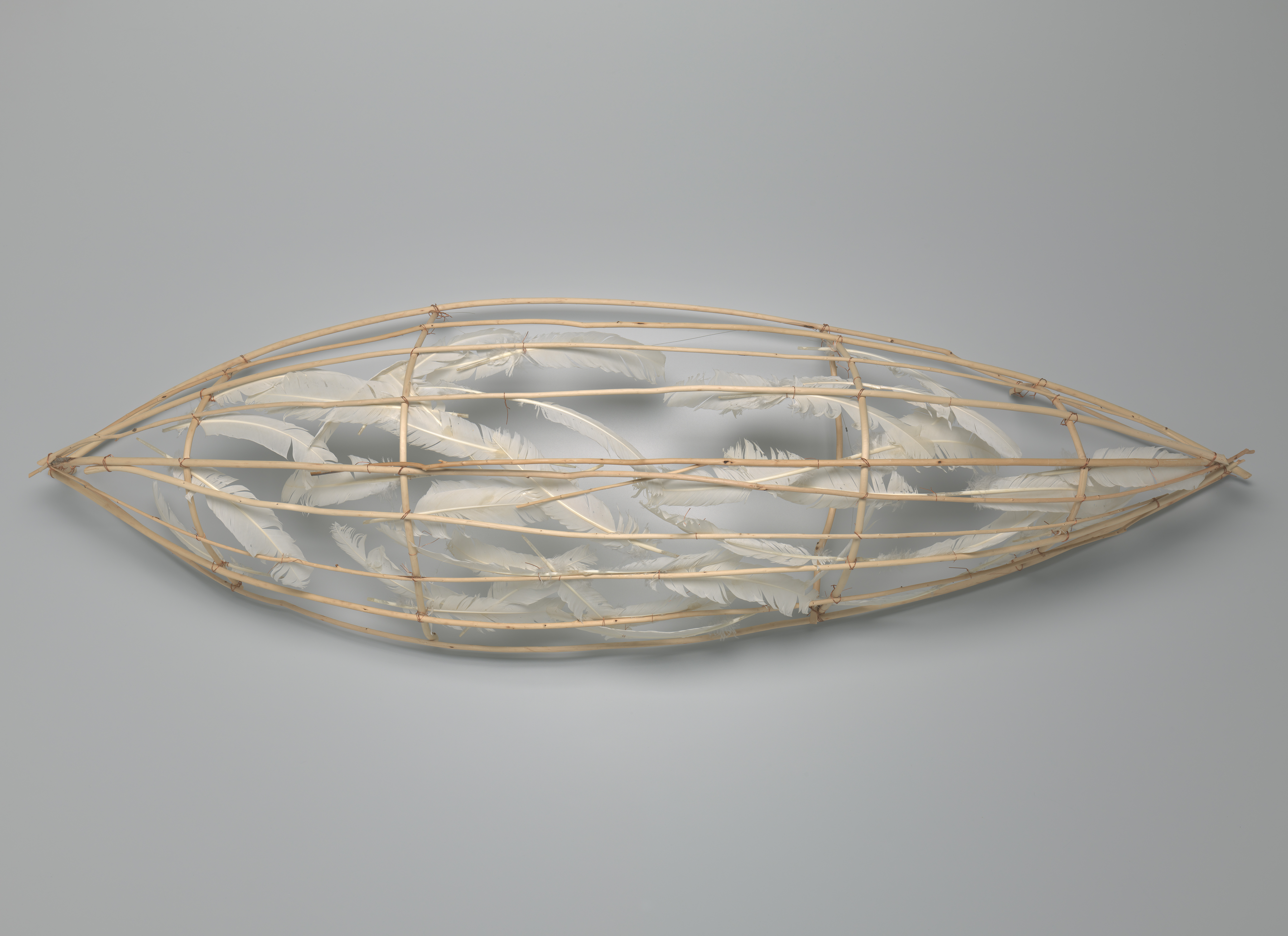
- Details
- By Native News Online Staff
The Smithsonian’s National Museum of the American Indian will debut Water’s Edge: The Art of Truman Lowe this fall at its Washington, D.C., location. Opening to the public on October 24 and running through January 2027, this exhibition marks the first major retrospective of the acclaimed Ho-Chunk artist Truman Lowe (1944–2019).
Bringing together Lowe’s monumental works for the first time, the exhibition showcases significant pieces from both public and private collections, including 28 from the museum’s own holdings. Featuring approximately 50 sculptures, drawings, and paintings, Water’s Edge traces the evolution of Lowe’s career and the central themes in his work. His sculptures—crafted from willow branches, feathers, and other organic materials—evoke the flowing rivers, streams, and waterfalls of his Wisconsin homeland, as well as the canoes traditionally used to navigate them.
“Truman Lowe’s art reflects on cultural traditions, memory and human relationships to place,” said exhibition curator Rebecca Head Trautmann. “We are excited to share his work and his story with our visitors this fall.”
A companion catalog, also set for release this fall, will offer fresh insights into Lowe’s life and artistic journey. Featuring scholarly essays and reflections from artists influenced by his work, the publication provides a deeper exploration of his creative legacy and impact.
More Stories Like This
Vision Maker Media Honors MacDonald Siblings With 2025 Frank Blythe AwardFirst Tribally Owned Gallery in Tulsa Debuts ‘Mvskokvlke: Road of Strength’
Zuni Youth Enrichment Project and Partners at Ho’n A:wan Productions Launch 8th Annual Delapna:we Project
Chickasaw Holiday Art Market Returns to Sulphur on Dec. 6
Center for Native Futures Hosts Third Mound Summit on Contemporary Native Arts
Help us defend tribal sovereignty.
At Native News Online, our mission is rooted in telling the stories that strengthen sovereignty and uplift Indigenous voices — not just at year’s end, but every single day.
Because of your generosity last year, we were able to keep our reporters on the ground in tribal communities, at national gatherings and in the halls of Congress — covering the issues that matter most to Indian Country: sovereignty, culture, education, health and economic opportunity.
That support sustained us through a tough year in 2025. Now, as we look to the year ahead, we need your help right now to ensure warrior journalism remains strong — reporting that defends tribal sovereignty, amplifies Native truth, and holds power accountable.
 The stakes couldn't be higher. Your support keeps Native voices heard, Native stories told and Native sovereignty defended.
The stakes couldn't be higher. Your support keeps Native voices heard, Native stories told and Native sovereignty defended.
Stand with Warrior Journalism today.
Levi Rickert (Potawatomi), Editor & Publisher


